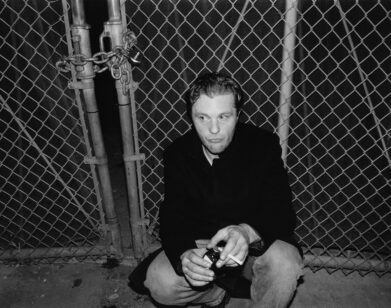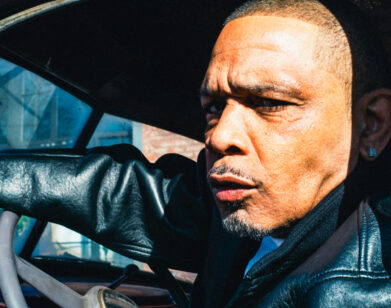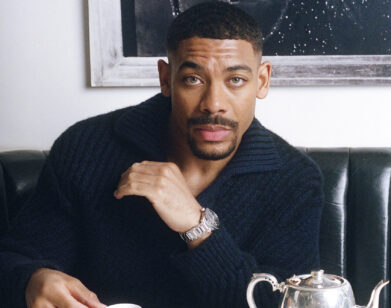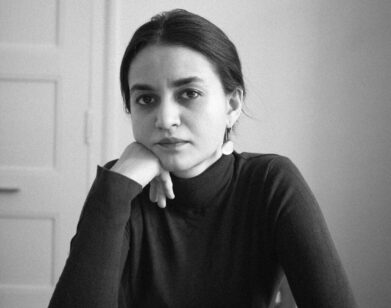Fear and Hoping in Moscow: Cyril Tuschi’s Khodorkovsky
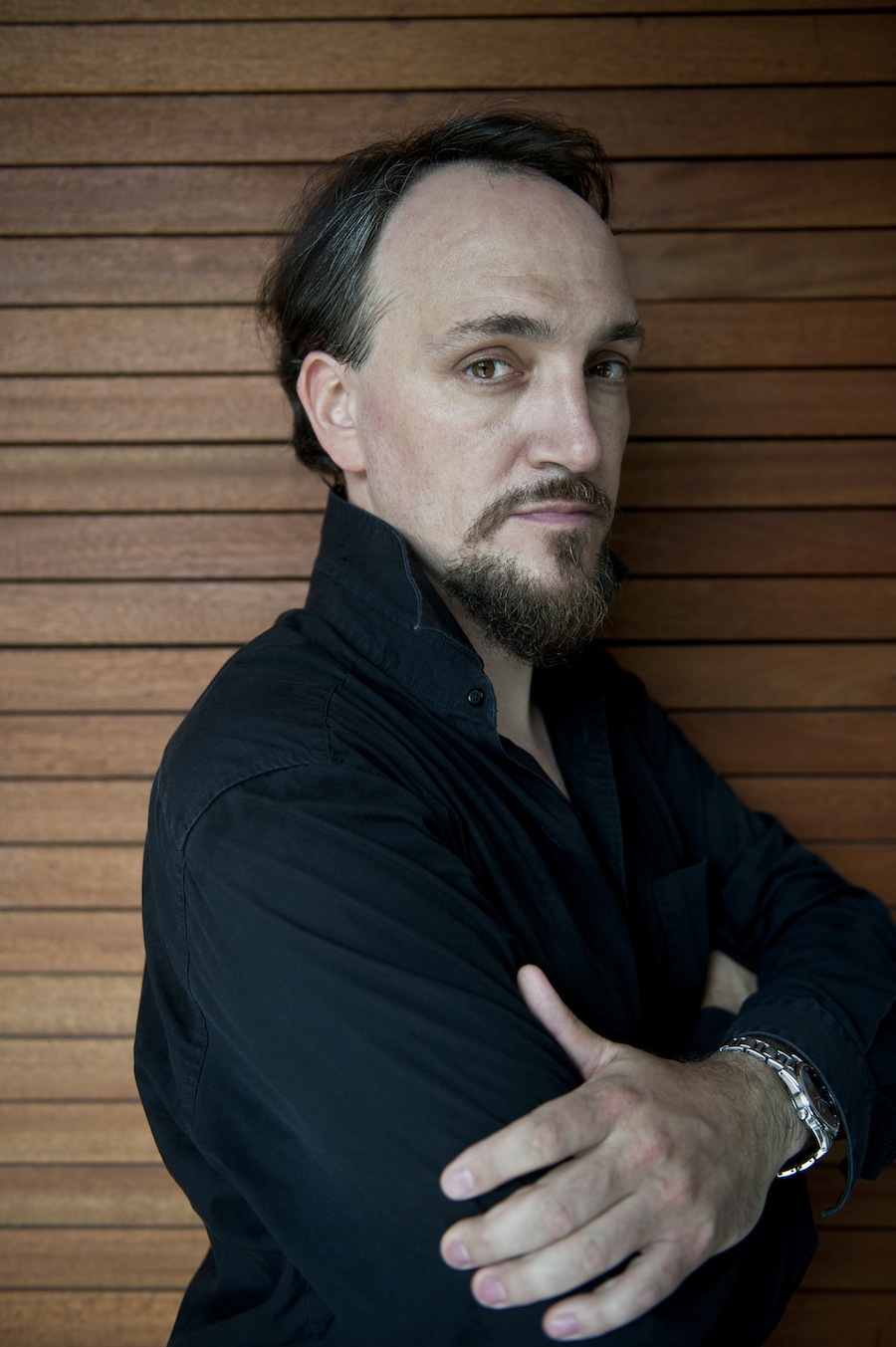
ABOVE: CYRIL TUSCHI. PHOTO COURTESY OF LAURA JAY
Mikhail Khodorkovsky, the subject of a new documentary by German filmmaker Cyril Tuschi, was said, at one point, to be the richest man in the world under 40 and on his way to being the richest man in the world, period. A complicated figure, he founded Russia’s first private bank and took advantage of the mad privatization rush after the fall of communism, acquiring Yukos, the largest non-state-owned oil company, at a controversial auction that saw Khodorkovsky paying far less than the company was valued.
Less than 10 years later, everything would change. Khodorkovsky, now something of a philanthropist billionaire—the film shows images of him, arm around shoulder, with Bill Gates—was being pushed out of his company due to a series of tax reassessments, and suddenly labeled a criminal, the image of what was wrong with Russia. Tuschi, following every lead he can, maneuvers through the political and personal maze to explore the motives behind the arrest and continued imprisonment of Khodorkovsky.
Interview spoke to Tuschi about the origins of the film, what was left out, and showing the “wall of silence.”
CRAIG HUBERT: When did you first become interested in Khodorkovsky as a subject for a film?
CYRIL TUSCHI: It came all at once, more or less. Like in the film, I was invited with my road movie, Slight Changes (2004), to this weird festival in the middle of nowhere, in the oil fields. It was super rich, super fancy, and everything was paid for—we even got free ski tickets, and clothing, everything for free. What was going on here? Well, firstly, the festival was founded by Yukos, and now some other oil company, because they got in trouble with Putin. I thought, “Wow, what a strange situation. What a great drama.” So I wrote a little exposé, for fiction. We also already shot a bit—my cameraman, he was there, but for partying, and he shot a bit on his HD camera. So before I knew we were making a documentary, I had already shot.
HUBERT: Was looking at this footage what made you decide to begin making this as a documentary?
TUSCHI: No, after I found out that all the attempts for fantasy were weaker than the overwhelming reality that greeted me in Russia.
HUBERT: When Khodorkovsky was arrested, and when his second trial occurred, last year, his case was worldwide news. Much has been said about him over this period. What did you think you could say, or explore, differently with your film? Were there questions you wanted answered?
TUSCHI: You’re right. Already, there were three shorter television films about him. But I’m not a journalist, so my idea was more from the personal side, curiosity. I wanted to find out why he was acting so illogical while he’s keeping such a logical appearance. He’s like a chess master. When you see him, you think that everything that he is doing is under his control and that he thinks five steps ahead. Seemingly, he must have made a mistake, or he wouldn’t be in prison. Then I found out that he came back—he had the chance to stay in New York, with money, but came back. This ambiguity is always interesting.
HUBERT: At the very beginning of the film, you talk to three Russian teenagers, and only one knows who Khodorkovsky is. Even then, he knows very little beyond the name. Was this common in Russia? Do people know about Khodorkovsky?
TUSCHI: Only in Moscow do people know a lot about the case. In the rest of Russia, a lot of people don’t know him, or just don’t care, or only know him through what you see on television, which is that he is a thief. But it changes. Every day, every year he is in prison, more people support him.
HUBERT: He is a complicated figure—did your opinions on the case or on him personally, change while making the film?
TUSCHI: They changed all the time. At some point I was so confused I thought I would have to stop, because I don’t see an order in this man, I don’t see an order in my opinion about him. Then I turned it around and said, “Okay, I will put this insecurity in the film.” I tried to compress it a bit, show it to the audience, and let them make their own way through the maze of information. It was a risk. Some people told me they don’t know which side I am on.
HUBERT: That’s not your job.
TUSCHI: That’s what I think, and I’m happy that just a few tell me stuff like this; the rest appreciates the delicate work or keeping it—or leaving it—in the balance. I’m not well enough paid to take sides. [laughs]
HUBERT: You shot the film over a number of years, and I’m always curious about this with documentary filmmakers: what was the moment when you realized you had all the information you needed? Seemingly, you could be still out there following Khodorkovsky.
TUSCHI: Exactly. Very simple—it was the interview. The evening after we shot it, I said, “Okay, we’re stopping, we’re starting editing.” If I didn’t get the interview, I think I would be shooting right now.
HUBERT: I thought we could talk a little bit about the idea of fear in the film. There is fear on both sides—from you, and from the people you talk to.
TUSCHI: It’s always there, but my fear decreased after the first phase of fear—Anna Politkovskaya [Russian journalist] got killed; it was a really bad moment to go to Russia. It went better when the weather got better. You can’t fear all the time. But I almost changed the subject from Khodorkovsky to fear, because it was strong and so all engulfing.
HUBERT: Do you think being a foreign filmmaker was an advantage?
TUSCHI: I think it was a disadvantage that I was a foreigner, because of the mistrust. It was very naïve of me to do it without any Russian—I learned it while I was there, and it made it very complicated. But it was also an advantage, and people say this in Russia, that I was a foreigner. I had the distance they don’t have. I was able to ask naïve questions, which are normal. If you’re used to this terror, or this fear, you don’t ask questions anymore.
HUBERT: You talked a little about including yourself in the film, which I found interesting, because it becomes a personal story as well.
TUSCHI: I had the idea of a video diary when the psychological pressure from me, or too many question marks were going around, I had to record it not to lose it. Like this [points to recorder on table]. I was hesitant to put myself in at all. I like Michael Moore, sometimes—it’s propaganda, but it’s propaganda for the weak, so it’s okay propaganda. I know it’s very easy to become vain, to make it a circus. Also, the voiceover: I always thought documentaries with voiceover were crap. But I did it to show the wall of silence—that all the other side, who I wanted to have, didn’t want to speak to me. I tried many times, many ways. I even tried with a different name and title.
HUBERT: Did you reach out to any of his foreign contacts? In the film, there are images of Khodorkovsky hanging out with Bill Gates and meeting with the President.
TUSCHI: I have many sub-topics already edited, but I had to bring the film in under two hours. The whole American chapter was not that successful, because the oil executives—from Exxon, and Chevron—didn’t want to speak. We had a little chat with Condoleezza Rice, but she didn’t want to tell in front of camera about the whole deal they were planning in the summer of 2003 to merge Yukos with Exxon, or Chevron. It wasn’t sufficient enough, and I couldn’t find a second source, so I had to kick it out in favor of the fight between the two titans.
HUBERT: I also wanted to ask about the animated sequences in the film.
TUSCHI: The early motivation to do it, from the very beginning, we had the idea to do it because we never thought we would meet him or see him. If you make a film about someone without seeing him, you have to create something. Some stuff, his arrest for example, was just a classical recreation—we met the pilot of the airplane [where Khodorkovsky was arrested], but his boss wouldn’t allow the interview.
HUBERT: Since the film has been released, have you had any correspondence with Khodorkovsky?
TUSCHI: When I was in Moscow, they gave me a letter from Khodorkovsky. He said he would really love to see the film one day, and wished me luck at the premiere.
HUBERT: Before the film was shown at the Berlin Film Festival, your production office was robbed, and computers with a cut of the film were stolen. There was a lot of speculation at the time. Has there been any update?
TUSCHI: Yeah. I’m happy, I’m relieved. In August, they found the three idiots, who were focused on Macintosh computers. It looked like a bad Hollywood set. The doorframes were broken out.
HUBERT: And I just read the other day that theater owners in Russia suddenly pulled out from showing the film. Will the film be seen in Russia? Will it just be private screenings?
TUSCHI: I was at the press screening in Russia. I was quite frightened about what I heard. For some reason, I lost all my fear. I came there, I wasn’t arrested at the airport—I had the number of the German Embassy; I was really prepared for anything. I was really scared. I even had a bodyguard picking me up and he was staying with me through the whole three days I was there. But people are changing. They are really asking the right questions—provocative, open. You can really feel like the fear is going away. The one thing I learned from the film is that people can really change. To me, it’s hopeful.
KHODORKOVSKY OPENS TODAY AT FILM FORUM IN NEW YORK CITY.

